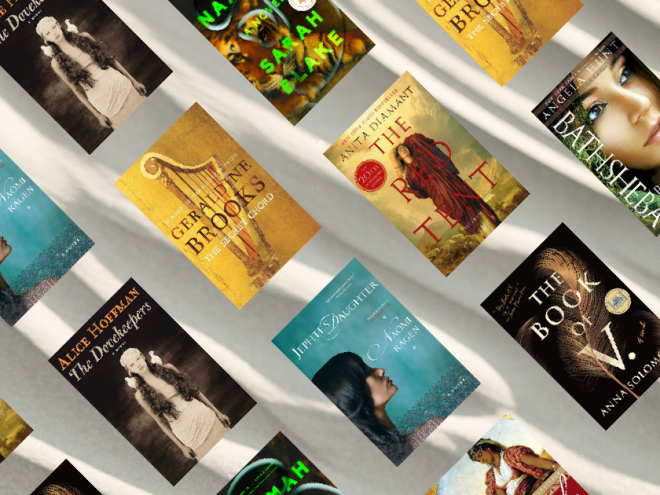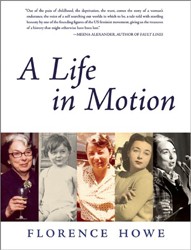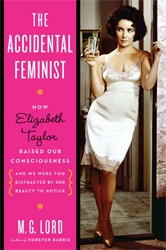Judy Chicago’s extraordinary body of artwork reflects the dynamism of her early commitments to feminism and forging a life as an artist. As the decades have unfolded, her artwork has continued to evolve. New, powerful works emerge from the studio bearing her name, and from the fingerprints of myriad craftspeople, with astonishing regularity. Chicago’s work is monumental and vitally relevant to the culture. While her place in the artwork seems secure, Chicago’s new autobiography, The Flowering, documents both the historical and contemporary precarity of her work while also reminding readers of her visceral, artistic vision.
Some readers may be familiar with only one of Chicago’s extraordinary art installation projects, such as The Dinner Party or The Holocaust Project. The Flowering introduces readers to her work’s range over a lifetime as a working artist. Chicago’s early feminist work, including the iconic Womanhouse as well as the Birth Project, and her lesser known works, such as PowerPlay and My Accident, all receive in depth attention in The Flowering, accented by full color and black-and-white images. The visual work is dazzling; it is fitting for Chicago to have such a richly illustrated autobiography. Equally dazzling is Chicago’s story of her struggles to create the work, to have it seen, and to be respected in the art world.
Chicago’s work is fundamentally reparative; she seeks through art to restore histories to people without power. In The Flowering, she writes, “What we have viewed as the historical record is primarily a chronicle of those few people in power.” Chicago’s art aims to change the historical record, remaking and reimagining it through the transformative power of art. Yet, as she insists throughout her life writing, she will not accept the limits of others nor will she limit her vision or her work. Through this defiance of limitations, the plucky persona of Chicago emerges in The Flowering—as it has in previous autobiographies. Chicago’s persona on the page is one of a trusted friend, a confidante, a role model. She explains how she did things and why, along the way making vital connections to her broader political consciousness. In the introduction, she addresses the uprisings of 2020 in the United States challenging police brutality, “All my life and work have been devoted to fighting for justice and equity through my art, I fervently hoped that these protests would lead to substantive changes, not only in American but around the globe.”
Insight into the mind and creative process of such a towering artist as Chicago is rare, but Chicago provides readers a series of iterative, insightful autobiographies that maps not only her creative work but also the material details of her life. The Flowering condenses her two earlier books, Through the Flower and Beyond the Flower, with new chapters that explore more recent aspects of her life and art. Chicago’s characteristic reflective and searching voice makes The Flowering a gripping read, especially for fans of her earlier books.
Julie R. Enszer is the author of four poetry collections, including Avowed, and the editor of OutWrite: The Speeches that Shaped LGBTQ Literary Culture, Fire-Rimmed Eden: Selected Poems by Lynn Lonidier, The Complete Works of Pat Parker, and Sister Love: The Letters of Audre Lorde and Pat Parker 1974 – 1989. Enszer edits and publishes Sinister Wisdom, a multicultural lesbian literary and art journal. You can read more of her work at www.JulieREnszer.com.




